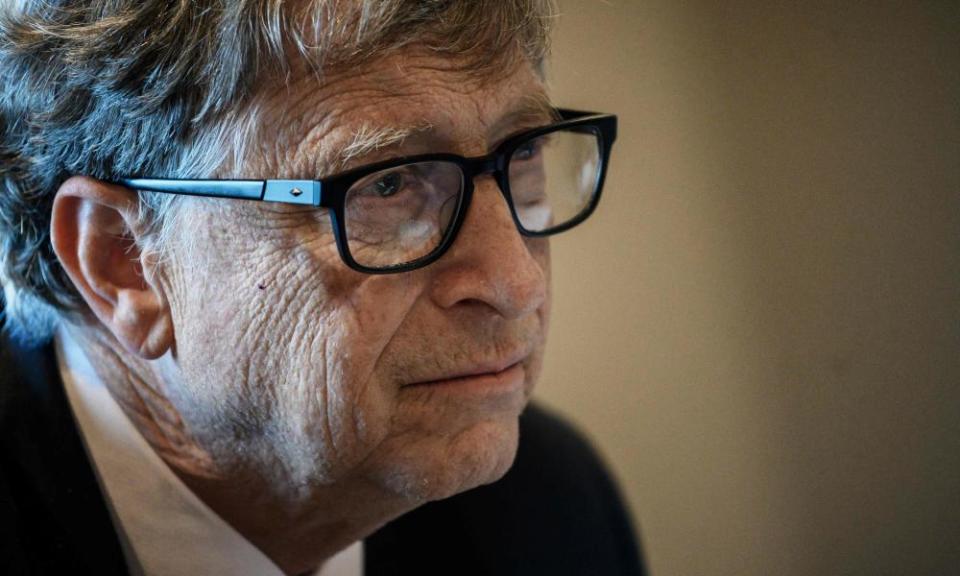UK chairs vaccine summit against backdrop of US-China battle

Boris Johnson will urge world leaders at a virtual summit to raise $7.4bn (£5.9bn) to distribute vaccines to combat infectious diseases in some of the poorest countries of the world over the next five years.
Meeting the target, Johnson said ahead of Thursday’s summit, would show that humanity could finally come together on global health after months in which it has become contested diplomatic terrain, mainly between the US and China.
The money will go to Gavi, the global vaccine alliance headed by Bill and Melinda Gates that for more than 20 years has developed and distributed vaccines in some of the world’s poorest countries for diseases such as malaria, cholera, measles and HIV/Aids.
Planned before the coronavirus pandemic, the UK-chaired replenishment summit is almost certain to reach its target since pre-announced pledges have reached 75% of the target. The UK alone has promised $1.65bn over the next five years. The US has set aside $1.2bn over three years, Norway $1bn and Japan $100m. The Gates foundation will unveil its contribution at the summit due to be attended by over 30 heads of state.
The money is designed to immunise an additional 3 million children and prevent as many as 7m deaths, according to Dr Seth Berkley, Gavi’s CEO . He said: “One of the targets is to focus on the 10% of children still not being immunised, two-thirds of whom are below the poverty line, often in conflict zones or urban slums.”
It is the second time the UK has chaired the five-year Gavi fundraiser, but it has required the prime minister to spend valuable time on the phone to fellow world leaders to stump up the cash.
Global health became a victim to the US-China battle after Donald Trump pulled out of the World Health Organization, and was then accused of trying to gain exclusive access to a coronavirus vaccine being developed by the German CureVac company.
The summit will try to progress plans for an as yet undiscovered coronavirus vaccine to be distributed equitably, and not just to the western powers that funded the research. Many leaders have called for a “people’s vaccine”, but the mechanism to achieve this, and prevent so-called vaccine nationalism, needs developing, Berkley said.
One of Gavi’s founding principles is to organise predictable large-scale demand for vaccines to ensure private pharmaceutical companies manufacture the drugs at the volume and the price poorer countries can afford.
The summit will see the launch of a so-called advanced market commitments (AMC), a means by which a signal can be sent to industry to scale up for a coronavirus vaccine.
Berkley said: “This all started out in Wuhan and within three months 180 countries were infected. Nobody is safe until everyone is safe. So if we have reservoirs of this virus it will affect the safety of the whole world, so we need to think about this globally. At a time of historic economic hardship and geopolitical strain the world is coming together here to show a collective willingness to build health security.
“The estimate is this pandemic is going to cost the world $9tn , and we are asking about billions of dollars, so it is a lot, but in the wider context it is a rounding error.
He said: “The world needs to cooperate on coronavirus vaccine since if every high income country backed a single vaccine on its own, they are taking a risky bet. The a priori chance of any vaccine succeeding is about 5%.”
An AMC was first launched in 2007, and used against pneumococcal diseases. In return for a guaranteed price of pneumococcal vaccines once developed, the companies entered into binding commitments on production and distribution.
In the last year alone, a total of 161 million doses of pneumococcal conjugate vaccine (PCV) has been procured through the AMC. Gavi projections indicated that the use of PCV will prevent over 700,000 future deaths from pneumococcal diseases among children in Gavi-supported countries over the next decade.
So far, Gavi has helped to immunize over 760 million children and has prevented more than 13 million deaths, helping to halve child mortality in 73 developing countries. It also plays a key role in improving global health security by supporting health systems as well as funding global stockpiles of vaccines to fight Ebola, cholera, meningitis, and yellow fever.
Research published last week by the Gavi showed that coronavirus had diverted health workers so that the routine vaccine programme was being blown off course. The disruptive effect of the Ebola outbreak in the Democratic Republic of the Congo on the normal vaccine programme led to twice as many dying from measles as Ebola.

